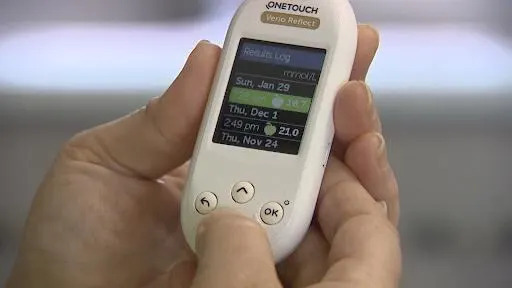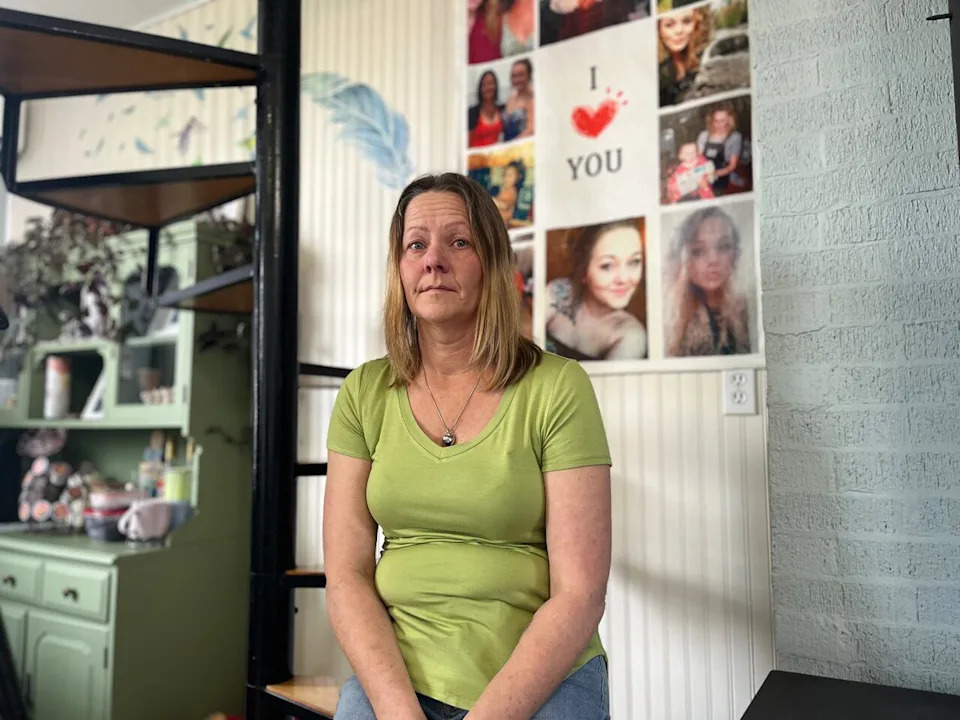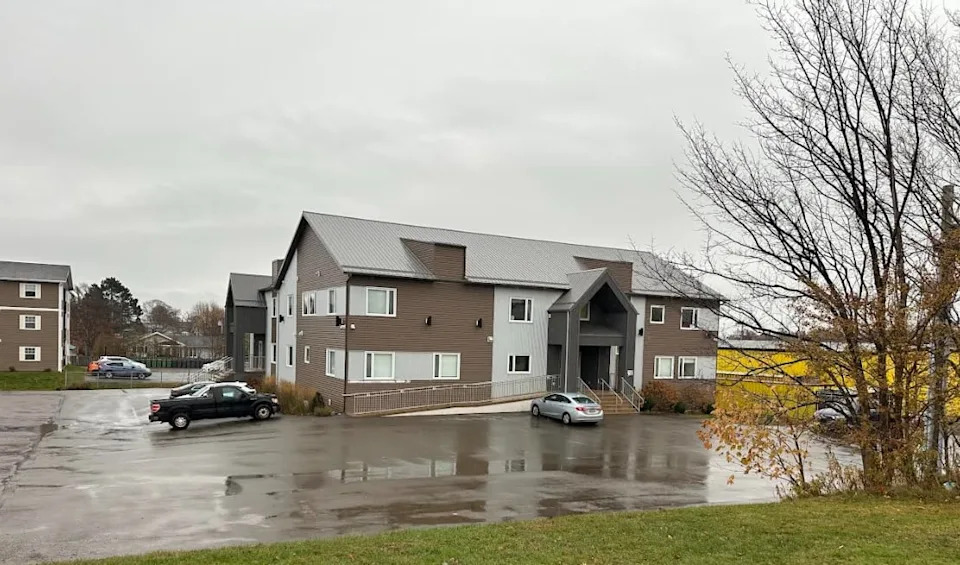Employees of the Canadian Mental Health Association (CMHA) painted two different pictures of Brandi Clarke on the second day of the inquest into the P.E.I. woman’s death at the non-profit’s transitional housing program.
Clarke died in 2023 from diabetic ketoacidosis — when someone’s blood turns acidic due to a lack of insulin.
On the first day of the inquest, jurors heard Clarke had a history of being hospitalized and not taking her medications for both her Type 1 diabetes and her psychotic symptoms, which her psychiatrist believed stemmed from schizophrenia.
In 2021, Clarke started attending a day program for people with mental health and addiction issues at the CMHA-run Notre Dame Place in Summerside. Later that year, she moved into one of its seven supportive housing units.

‘She wanted so much more in her life than what she had,’ says Karla MacAusland, who was part of the CMHA team that worked with Clarke. (Submitted by Heidi Clarke)
“Brandi was a wonderful young lady. She was beautiful. She wanted so much more in her life than what she had. She wanted to work, she wanted to be part of society. Brandi had a smile that would light up a room,” Karla MacAusland told the inquest.
“But Brandi struggled.”
Time at Notre Dame Place
“We had to remind her to take her meds, to eat, to follow her glucometer, to watch her blood sugars, to shower, to dress,” Sheri Phillips-Irwin told the inquest. “There was a lot of things we had to support her on.”
MacAusland and Phillips-Irwin were both part of the CMHA team that offered mental health support to clients like Clarke, but she received her medical care primarily from Health P.E.I. ‘s community mental health outreach team and her diabetes nurse educator.
The inquest heard from them Wednesday, too.
Her diabetes nurse said that while there have been many advancements in diabetic care — wearable devices like sensors, continuous glucose monitors and insulin pumps — Clarke did not seem to like the feeling of any devices on her body, so she would refuse or remove them.
Clarke would always go back to pricking her finger to test her blood sugar, but it was unclear if she was even doing that.
There were different types of insulin that could be prescribed as well, but when Clarke wound up in the hospital in diabetic ketoacidosis while living in Summerside, it was also unclear if she was taking her insulin with any frequency, or at all.
“She would tell me one thing, but the [Notre Dame Place] staff would tell me something else,” nurse Linda Howell-Coughlin said. “So it was very confusing.”
Howell-Coughlin used an example of a time when Clarke said her late-night eating — which could throw off her blood-sugar levels — was only vegetables. But then staff told the nurse they didn’t even have the foods Clarke mentioned.

(Kerry Campbell/CBC)
The Notre Dame Place workers also described Clarke as intelligent, someone who would tell those invested in her care and wellness what they wanted to hear, whether it was true or not.
“We could not always rely on the information she gave us…. We would just continuously try,” Phillips-Irwin said.
‘She needed more care than what we could offer’
The jurors heard the team in Summerside initially didn’t know how turbulent Clarke’s diabetes could be. They found out when she began living with them, and on one occasion, she was found unconscious.
Notre Dame staff eventually got ketone testing strips for Clarke’s urine when they suspected something was off. If it was positive, they’d call her mother to take her to the hospital, as it was policy to get family involved.

Heidi Clarke is attending the coroner’s inquest into the death of her daughter Brandi in March 2023. (Kerry Campbell/CBC)
The staff could not administer Clarke’s medications, including insulin, but they could encourage her to take it, ask for her permission to see her blood-sugar readings and threaten to take her to the emergency room if she didn’t comply.
“I would have to say that over the 19 years I was there, Brandi was probably the most complex,” Phillips-Irwin said.
MacAusland added: “We felt she needed more care than what we could offer.”
It was decided that Clarke needed to go to a different environment that had constant oversight, as Notre Dame Place was not staffed on evenings or weekends.

This is the CMHA housing complex in Charlottetown where Brandi Clarke lived leading up to her death in March 2023. (Nicola MacLeod/CBC)
Clarke was referred to the CMHA’s transitional housing program in Charlottetown, which accepted her after an interview and trial period.
She was also reassigned to community mental health in Charlottetown.
A nurse from that outreach team told the jurors that during Clarke’s intake appointment, she claimed her blood sugars had been better controlled in recent years.
Hearing this Wednesday prompted Clarke’s mother, seated in the front row, to shake her head.
A different Brandi Clarke
Clarke moved to transitional housing in Charlottetown in early October 2022, and the CMHA supervisor from that program said she saw a different side of Clarke in the time she knew her.
“Brandi presented herself as much more capable than staff at Notre Dame Place had observed,” Kim Grant said, noting that Clarke claimed she could do laundry, shower and clean her room, while the Summerside staff said she could not.
“[The interview] was very comfortable, I didn’t feel it was one of those cases where the individual was against coming. It wasn’t contentious. It was relaxed.”
Grant described Clarke’s first two weeks in Charlottetown as “smooth.” She kept her room clean, she participated in all required programming and she helped prepare meals.
The jurors heard medications in that program were kept locked up by staff, and when Clarke first arrived, she’d queue with the other residents to be given her meds, which she would then administer to herself and track in a log that was checked.
Clarke did this without issue, so within six weeks it was decided she would move from the first floor that had more staff oversight and into her own apartment on the second floor — a step in moving her towards fully independent living, as per the program’s goals.
There, she would receive all of her medications for the week at once, and was then responsible for administering them to herself.
Just days later, program supervisor Grant parted ways with the CMHA.
When asked by the Crown if she completed a knowledge transfer with the incoming supervisor, Grant told the inquest there wasn’t one at the time.
“I don’t know. I left,” she said.
The jury is expected to hear more about Clarke’s time in transitional housing — and her death in that apartment — when the inquest goes into its last scheduled day Thursday.
